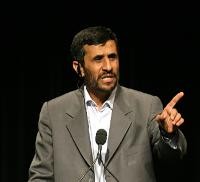Note: The following opinion piece was submitted in response to last week's WPR briefing, "Engaging Iran: An Interview with R. Nicholas Burns." As both a news and analysis journal, WPR is committed to airing all sides of acontested issue, so long as they are respectfully expressed.
Global diplomacy surrounding Iran's nuclear standoff is very likely to reach a critical fork in the road this fall. In the coming weeks and months, this potentially dangerous crisis could either escalate or veer toward hopeful signs of a mutually satisfactory resolution. Ahead of the G-20 summit in St. Petersburg as well as the U.N.'s annual gathering later this month, the momentum for a fourth round of U.N. sanctions is slowly but surely gaining, in light of Iran's rejection of the U.N. Security Council's demands to halt its nuclear fuel cycle.
However, those who argue that Iran will not make a serious effort to work with the international community to resolve the crisis are mistaken. Tehran has, to the contrary, adopted a coherent negotiating strategy in the hopes of forestalling sanctions and, worse, military action. The components of this strategy are:

